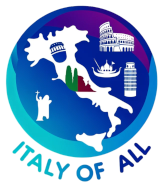The province of Grosseto, located in the southern part of Tuscany, Italy, is known for its vast, unspoiled landscapes, rich historical heritage, and strong agricultural tradition. It covers the largest area among Tuscan provinces and offers a unique blend of coastal beauty, archaeological sites, and pastoral countryside.
Geographically, Grosseto features a diverse range of environments from the fertile plains of the Maremma to the rolling hills and extensive forests. The coastline along the Tyrrhenian Sea includes some of Italy’s most beautiful and wild beaches, part of the renowned Maremma Regional Park, which is a protected area offering habitats for a wide variety of wildlife and a haven for eco-tourism.
Historically, Grosseto’s history is deeply influenced by the Etruscans and Romans, evident in the archaeological sites scattered throughout the province. The area was later dominated by the Medici family of Florence, who fortified Grosseto and left a legacy of architecture and art. The region’s medieval villages, such as Pitigliano and Sorano, built on steep tuff rocks, provide a glimpse into its past with their narrow alleys and impressive fortifications.
Culturally, Grosseto retains a strong local identity, with traditions that reflect its agricultural and rural heritage. The region is famous for its annual festivals, such as the Butteri (cowboys) performances, where local horsemen demonstrate their skills, continuing the traditions of cattle farming in the Maremma. The area’s rich folklore is also celebrated in music, dance, and food festivals throughout the year.
Cuisine in Grosseto is emblematic of the rustic Tuscan style, with a particular emphasis on game, locally produced cheeses, and fresh vegetables. Dishes such as acquacotta – a traditional soup made with bread, vegetables, and olive oil – and wild boar ragù reflect the region’s pastoral and hunting traditions. The province is also noted for its quality wines, like those from the Montecucco area, and its olive oil.
Economically, Grosseto’s economy is primarily based on agriculture, forestry, and tourism. The region is a significant producer of cereals, sunflowers, and fruits, particularly olives and grapes for wine. Tourism is increasingly important, with visitors drawn to the area’s natural beauty, beaches, and archaeological sites. Efforts to promote sustainable tourism and agricultural practices are key to the province’s economic strategy, aiming to preserve the natural environment and cultural heritage.
Despite challenges such as balancing development with environmental conservation, Grosseto is actively engaged in promoting a sustainable approach to tourism and agriculture. This includes protecting its coastal and rural landscapes while fostering an economy that supports local communities and preserves their way of life.
Overall, the province of Grosseto offers a compelling mix of natural beauty, historical richness, and cultural authenticity. Its commitment to maintaining its rural traditions while promoting sustainable development ensures its continued appeal as a distinctive and valued region within Tuscany.
Comuni in Grosseto Province:
- Arcidosso
- Capalbio
- Campagnatico
- Castell’Azzara
- Castiglione della Pescaia
- Cinigiano
- Civitella Paganico
- Grosseto
- Gavorrano
- Giglio Island
- Manciano
- Massa Marittima
- Magliano in Toscana
- Monte Argentario
- Monterotondo Marittimo
- Montieri
- Orbetello
- Roccastrada
- Pitigliano
- Roccalbegna
- Seggiano
- Scarlino
- Scansano
- Sorano
- Semproniano
- Santa Fiora
